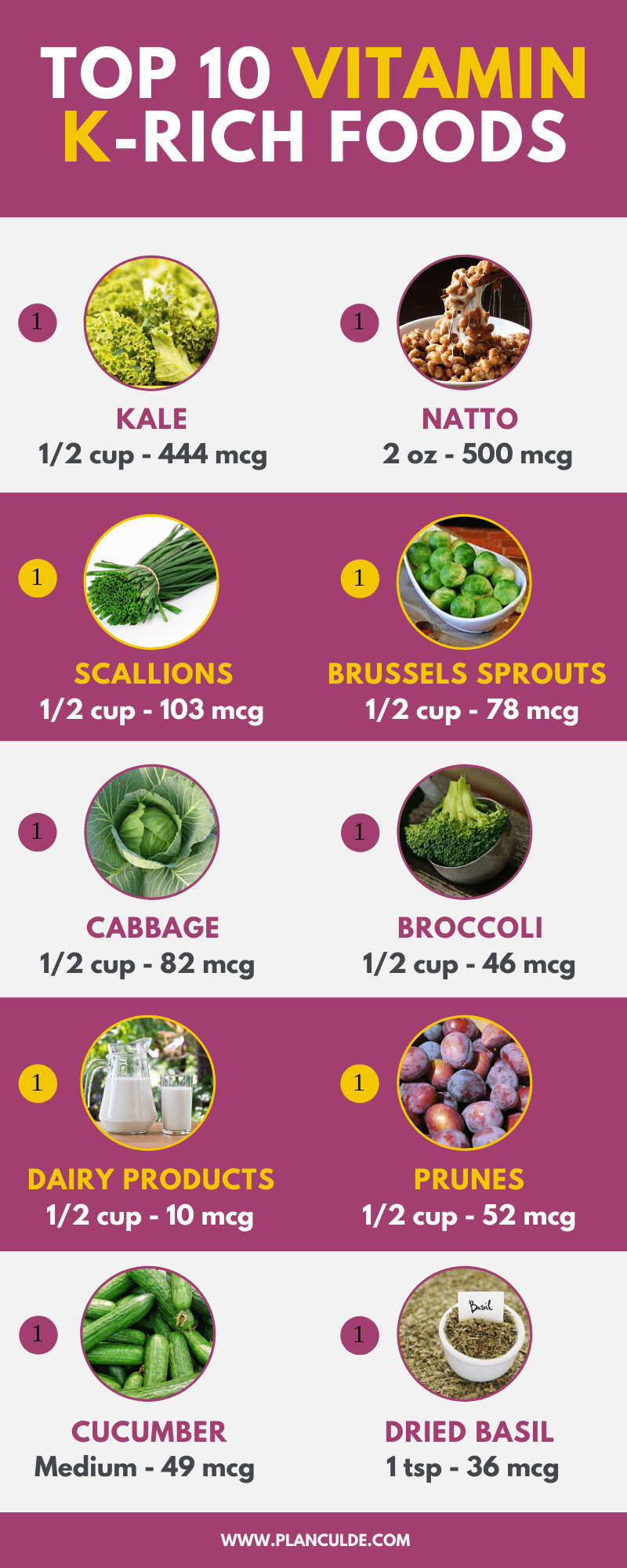Last Updated on August 6, 2021 by Nick J-Pepe
The fat-soluble vitamin, vitamin K, is essential to blood clotting. This vitamin activates a protein in the body that helps the blood to clot properly. In addition to this, vitamin K is necessary for bone development. Nature has given us some natural vitamin K foods to source the required amounts.
A deficiency of vitamin K can increase the risk of tooth decay, weak bones, cardiovascular disease, and even cancer. Vitamin K is produced naturally in the intestinal bacteria in the gut.
If your gut’s bacterial levels become imbalanced, the amount of vitamin K that you need to consume can increase. Vitamin K comes in two different forms. Vitamin K1 occurs naturally in vegetables.
Vitamin K2 is the type that is produced in the intestinal tract. It can also be found in dairy products. If you need to supplement your vitamin K levels, opt for dairy products rich in vitamin K as they have been shown to offer more health benefits.

You can get your vitamin K dosages from supplements, however, you should pay attention to take the right vitamin K form – MK-7. This type of vitamin K is synthetic and does not offer the same benefits as the foods listed below.
Vitamin K Foods Offer the Following Benefits
- Improves cardiovascular health;
- Increases bone density;
- Restores oral health;
- Helps prevent cancer;
- Strengthens the immune system and reduces the number of infections you have.
Although the recommended daily value of vitamin K is 80 mcg, men and women require different amounts of vitamin K each day. Men need approximately 120 mcg/day, while women only need 90 mcg per day.
Vitamin K Foods – Top 10 Vitamin K Rich-Foods
Here is a list of the top 10 vitamin K rich foods that can help you get the necessary amount of vitamin K you need to maintain good health.

- Kale and other green leafy vegetables provide 444 mcg of vitamin K in a 1/2 cup serving.
- Natto, or fermented soy, provides 500 mcg of vitamin K in each 2-ounce serving.
- Scallions contain 103 mcg of vitamin K in each 1/2 cup serving.
- A half-cup of Brussels sprouts provides 78 mcg of vitamin K.
- Cabbage contains 82 mcg of vitamin K in each 1/2 cup serving.
- A half-cup serving of broccoli provides 46 mcg of vitamin K.
- Fermented dairy products provide 10 mcg of vitamin K in each 1/2 cup serving.
- A half-cup of prunes provides 52 mcg of vitamin K.
- A medium cucumber contains 49 mcg of vitamin K.
- Dried basil provides 36 mcg of vitamin K per one tablespoon.
To ensure you are getting enough vitamin K in your diet, try to consume two or three of these vitamin K rich foods.
What Benefits Does Vitamin K Offer?
1) Cardiovascular System
Vitamin K helps to prevent calcification of the arteries, which is the leading cause of heart attacks.
Vitamin K carries calcium out of the arteries and prevents it from forming hard plaque, which can clog the arteries.
2) Bone Health
Vitamin K reduces the risk of osteoporosis by supplying the body with the protein it needs to absorb calcium.
Some studies have shown that vitamin K can halt bone loss in patients suffering from osteoporosis.
3) Cancer Prevention
Vitamin K can help reduce the risk of developing some cancers, including prostate, stomach, nasal, oral, and colon.
Patients with liver cancer have responded favorably to high doses of vitamin K. In these patients, their liver functions improved.

